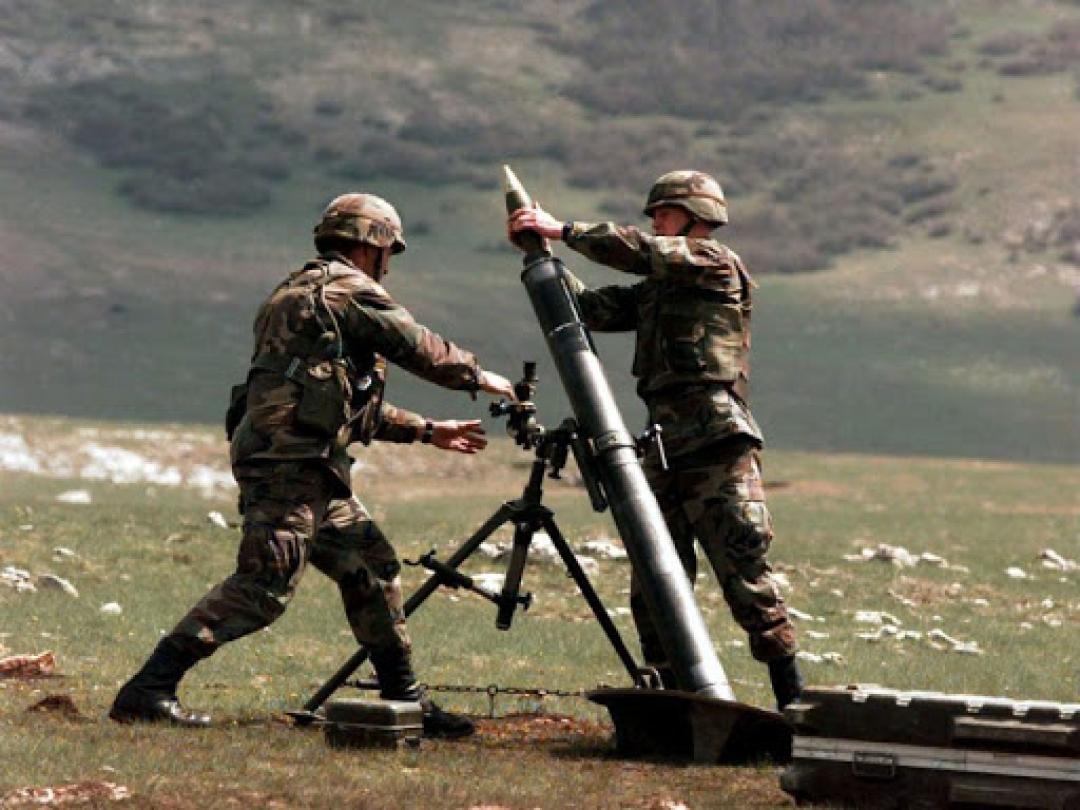
Nagorno-Karabakh conflict: new hostilities and diplomatic statements

On 4 May, an Armenian contract serviceman, identified as Taron Poghosyan, was fatally wounded in a landmine explosion in Nagorno-Karabakh. An investigation has been launched to examine the circumstances of the incident.
A few days earlier, on 2 May, the Azerbaijani Ministry of Defense (MOD) Zakir Hasanov stated that the “provocative actions of the Armenian side” have recently intensified and that it sharply increases the likelihood of resumption of hostilities on the contact line. According to the press service of the Azerbaijani MOD, Hasanov gave specific instructions on strengthening intelligence of all types at the forefront and in the depths of the enemy’s defense, specifying plans for combat readiness, comprehensive support of troops, as well as checking the readiness of personnel to conduct intensive exercises and trainings. He also demanded that commanders of all levels be prepared to curb various provocations, decisively prevent the enemy from activating in all directions of the front and conduct military operations.
On 29 April, both the Armenian and Azerbaijani MOD’s accused each other of using mortars on the contact line and violating the ceasefire agreement.
Recent Mnatsakanyan and Mammadyarov statements on the settlement issue
On 4 May, Armenia’s Foreign Minister Zohrab Mnatsakanyan spoke in front of the National Assembly’s Foreign Relations Standing Committee’s session and stated that a phased approach to the Nagorno-Karabakh conflict would be possible, but it should provide for proportional compromises of all parties to the conflict. “It is extremely important for us to form a package circle where the commitments are comparable and are being controlled. I repeat, if it is supposed to be a stage-by-stage variant, where one side implements its commitments [and] does not get comparable steps from the other side [or] violates positions, it is impossible,” he said.
Mnatsakanyan also reaffirmed that the “security of the people of Nagorno-Karabakh” remained the priority of his agenda. “Our positions are firm, and I feel very calm and firm. We have consensus and inner strength. The government’s mandate stems from the people’s mandate. And if someone thinks that Azerbaijan’s positions are acceptable for all, he is deeply mistaken. The process is really complicated,” he added.
A few days earlier, Azerbaijan's Foreign Minister Elmar Mammadyarov stated that the return of Azerbaijan’s occupied territories have always been part of Nagorno-Karabakh peace negotiations with Armenia. “The details of the negotiations are not [available to the public]. However, to this date, the general format of the negotiations have been stated by the co-chairs as well as the leaders of the co-chairing countries on many occasions. All these reflect the elements of a step-by-step settlement of the conflict, meaning that the gradual elimination of the consequences of the conflict, the initial liberation of the occupied territories around Nagorno-Karabakh, the return of Azerbaijanis expelled from these territories, the opening of communications between Azerbaijan and Armenia, ensuring conditions for the two communities of the Karabakh region to cohabitate for some time, and consideration of the status of the region within the territorial integrity of Azerbaijan in the next stages are envisaged,” he noted.
He also added that prior to the meeting of the two FM’s on 21 April, Russian Foreign Minister Sergey Lavrov has expressed his position on a step-by-step solution to the conflict, which has been a topic of discussion for many years and is clearly stated in the statements of the co-chairs. “In response, the Armenian Foreign Minister said that the return of lands was not considered, as well as touched upon issues related to security and the principle of self-determination of peoples. It is known that this statement was made to reassure the local community. Otherwise, Mnatsakanyan would not have continued the talks in a video conference a few hours after the statement,” he said.
On 21 April, Lavrov said that there is currently a document on the table that provides a step-by-step solution to the Nagorno-Karabakh conflict (Caucasus Watch reported). The spokesperson for Armenia’s Ministry of Foreign Affairs Anna Naghdalyan commented on the statement, saying that since 2018 Armenia has not been negotiating on a phased approach regarding the settlement. The Russian MFA in contrast argued that such a document exists. Both Mnatsakanyan and Mammadyarov were criticized by the Armenian and Azerbaijani political figures for their handling of the negotiations following Lavrov’s statement (Caucasus Watch reported).
See Also


Simonyan: “Armenia Should Trade with Turkey and Azerbaijan Instead of Closing Borders”

Mirzoyan Meets US Deputy Assistant Secretary Joshua Huck

Azerbaijani President Holds Talks with UAE and German Business Delegations on Economic Cooperation

Grigoryan Confirms Armenia’s Readiness to Dissolve OSCE Minsk Group Upon Peace Treaty Signing

